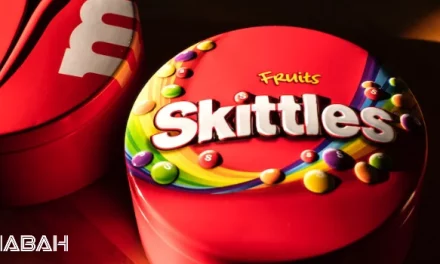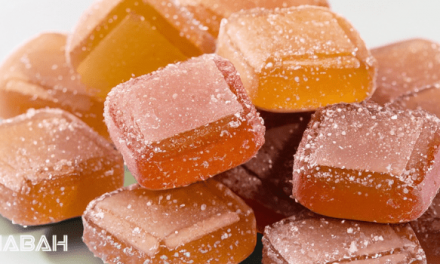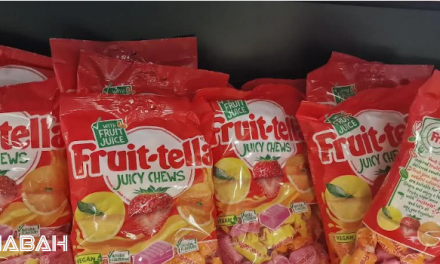Trolli is one of the most popular and recognizable brands when it comes to gummy candy. Millions of people around the world enjoy Trolli’s delicious gummy treats, like their classic gummy worms, gummy bears, Sour Brite Crawlers, peachie rings and more. However, for those who follow a halal diet based on Islamic law, one important question arises – is Trolli candy actually halal?
The concept of halal refers to any foods that are permissible under Islamic dietary guidelines. Meanwhile, haram refers to any prohibited foods that Muslims are expected to avoid. Pork and alcohol are two examples of universal haram products that are not consumed by observant Muslims. When it comes to candy and sweets, the use of pork-derived gelatin is a major issue, as gelatin gives gummy candies their chewy, bouncy texture. However, if gelatin comes from beef or other acceptable sources, it can be halal.
With major candy brands like Trolli, verifying this halal status is not always simple, as halal certifications are not universally advertised on packaging. This leaves many Muslim consumers wondering if beloved candies like Trolli gummy worms or bears may contain haram ingredients.
In this comprehensive guide, we will analyze the various ingredients used in different Trolli candy products. We will also examine what Trolli’s manufacturer, the Ferrara Candy Company, has publicly stated about meeting halal dietary standards. By looking at Trolli candies’ ingredients lists, manufacturing details, and halal certifications, we can determine which Trolli treats are most likely halal-approved versus prohibited.
Overview of Main Ingredients in Trolli Gummy Candies
To begin analyzing the halal status of Trolli products, we first need to understand what ingredients are commonly used in their signature gummy and sour candies:
Corn Syrup
One of the primary ingredients is corn syrup, which acts as a sweetener and binder in Trolli candies. Corn syrup comes from processing cornstarch and is vegan, making it halal compliant.
Sugar
Trolli gummies also contain regular granulated sugar, typically from cane or beet sources. Most white sugar is refined in a way that makes it vegan and halal approved.
Gelatin
This crucial ingredient provides the chewy, stretchy texture consumers expect from gummy candies. Gelatin melts at body temperature, allowing for a pleasant mouthfeel. However, the source of gelatin is very important for halal status, as pig-derived gelatin would be haram.
Fruit Juice Concentrates
To achieve delicious fruity flavors, Trolli uses fruit juice concentrates from sources like oranges, limes, raspberries, peaches, and more. Fruit juices are vegan and permissible in halal diets.
Citric Acid
This common preservative gives Trolli gummies a tart, sour taste. It is made from citrus fruits, qualifying it as halal.
Artificial Colors and Flavors
Synthetic colors like Red 40 or Blue 1 and artificial flavors are commonly used to achieve vibrant candy colors and flavors. These are typically vegan and do not contain animal products.
So by examining the main components of Trolli’s gummy candies, the source of the gelatin is clearly the major factor in determining if a specific candy is halal or haram for Muslim consumers.
Difficulties Verifying Halal Status of Major Candy Brands
For those who follow a halal diet, verifying the halal status of major candy brands like Trolli can be challenging and confusing. Here are some of the primary difficulties faced:
-
No definitive statements from manufacturers – Big candy companies like Trolli rarely advertise if their products are halal certified and compliant on packaging or websites. They leave it up to the consumer to inquire about sourcing.
-
Lack of third party certification – Unlike many food products marketing specifically to Muslim consumers, popular brands like Trolli do not generally have halal symbols from certification organizations on packaging. This makes it hard to confirm at a glance if products are halal.
-
Variations between formulas – Since candy formulas frequently change, a brand like Trolli may source gelatin or other ingredients from different suppliers over time. This means older products could differ in halal status from newer ones.
-
Insufficient ingredient listings – Candy ingredient labels may not always clarify the source of questionable ingredients like gelatin. Listing just “gelatin” doesn’t specify if it’s from beef or pork.
-
Regional and seasonal variations – A Trolli product purchased during Spring in California may not have the same formula as one purchased in Fall in Michigan. Local ingredient availability results in inconsistencies.
Without clear halal certifications or ingredient disclosures from major candy companies like the manufacturer of Trolli, many Muslim consumers are left playing detective to try to determine if gummy candies contain pork and are haram.
Trolli Candy Halal FAQs from Ferrara Candy Company
Ferrara Candy Company is the manufacturer of Trolli candies as well as other popular brands like Lemonhead, Now and Later, and more. Ferrara provides some answers to frequently asked questions about their products’ dietary restrictions and appropriateness for people following religious guidelines, such as a halal diet.
On their Trolli FAQ page, here is what Ferrara Candy discloses about the halal status of certain Trolli candy:
-
“Gelatin in regular Trolli candies sold in the U.S. is most often from pork.” This implies that their classic gummy formulations like Trolli Gummy Worms and Bears likely contain pork-based gelatin are not halal.
-
“Trolli Sour Brite Crawlers, however, are gelatin-free and halal certified.” These are advertised as a halal compliant alternative for consumers who need to avoid pork gelatin.
-
“If you have additional questions or special dietary needs, please call Consumer Relations.” Ferrara advises speaking directly to their team for clarification on other Trolli items not addressed.
So from the manufacturer’s public statements, we can surmise:
- Standard Trolli gummies have pork gelatin and are not halal in most cases.
- Select products like Sour Brite Crawlers are halal certified and gelatin-free.
- Consumers need to inquire individually about additional Trolli candies if halal status is a concern.
While not definitive, this provides helpful insights into which Trolli treats are more likely to be halal versus prohibited for Muslim consumers.
Evidence for Halal Alternative from Trolli Candy Ingredient Lists
Looking carefully at the ingredient lists printed on Trolli candy packaging provides more clues into whether it is halal compliant or contains haram ingredients like pork-based gelatin.
Here is an analysis of some classic Trolli gummy ingredients:
Trolli Sour Brite Crawlers
- No gelatin – Uses pectin instead as the gelling agent
- Halal symbol visible on package
- Verdict: Halal and gelatin-free
Trolli Peachie Rings
- Gelatin is 4th ingredient – No source specified
- No halal certification symbol
- Verdict: Likely contains pork gelatin, not halal
Trolli Sour Gummi Worms
- Gelatin is 2nd ingredient – Major component
- No halal indication
- Verdict: Most likely has pork gelatin, haram
So clearly certain Trolli items like the Sour Brite Crawlers are marketed as halal certified and gelatin-free, earning them a designation as permissible. However, other classic gummies like Peachie Rings and Sour Gummi Worms almost certainly contain pork gelatin, making them haram.
Muslim consumers must pay close attention to the ingredient list and any halal claims on each specific Trolli product to determine if it meets their dietary standards of permissibility according to Islamic law.
The Verdict: Which Trolli Candies Are Halal?
Based on the ingredient analysis, manufacturing details from Ferrara Candy Company, and available halal certifications on packaging, what final conclusions can we draw about Trolli candy?
-
The Trolli Sour Brite Crawler line appears to be halal compliant, based on its clear halal certification symbol and use of pectin instead of gelatin. This formula seems to meet Islamic dietary regulations.
-
Most traditional Trolli gummy products, like their classic gummy worms, likely contain pork-based gelatin, according to the manufacturer. Since pork is universally prohibited in halal diets, these are most likely not halal.
-
For other Trolli items, the halal status may vary. Some limited edition or specialty flavors may use bovine gelatin and be permissible, while others are likely haram unless certified. Only personal verification with the company can provide certainty.
-
Transparency from manufacturers like Ferrara Candy is still lacking. They admit “most” of their gummies contain pork gelatin, but do not provide definitive ingredient sourcing details to consumers. This makes verifying halal status difficult for any mass-market candies.
So in summary – some Trolli products clearly can be part of a halal lifestyle, while their traditional gummy worm and bear candies are most likely prohibited due to containing pork-derived gelatin. Extra consumer research is required to determine the permissibility of any other Trolli candies not explicitly certified as halal.
Enjoying Halal Compliant Gummy Candies
For Muslim families and individuals that love gummy candy but want to avoid haram ingredients like pork gelatin, there are still plenty of tasty options to satisfy your sweet tooth:
-
Look for halal certifications – Symbols like the Crescent M from IFANCA indicate an independent verification process.
-
Choose gelatin-free gummies – Many brands now offer pectin-based gummies advertised as “halal” or “vegan”.
-
Select gummies made with fish gelatin – Fish gelatin is halal, though not always disclosed on packaging.
-
Buy brands listing only beef gelatin– Call the manufacturer if uncertain.
-
Make DIY halal gummies – Agar agar powder acts as a vegetarian gelatin substitute.
-
Opt for fruit-based gummies – Types with pureed fruit like mango lack gelatin entirely.
Following these guidelines allows those adhering to halal diet standards to still enjoy the fun textures and flavors of gummy candy. Brands like Trolli may offer some specialty items that are halal, but careful label reading is always essential.
The Takeaway: Is There Room For Trolli in a Halal Lifestyle?
For observant Muslims who avoid pork and desire verification of halal status, mass-market candy brands like Trolli pose some challenges. Their hesitance to openly disclose gelatin sourcing makes determining true halal compliance difficult. Yet Trolli does produce select items, like their Sour Brite Crawler gummies, which are intentionally formulated to meet halal diet guidelines. So while the classic gummy worms may be off limits, Trolli’s product range still allows for some permissible options for halal consumers seeking that same delightful, chewy candy experience. With careful inspection of ingredients and some guidance from the manufacturer, certain Trolli candies can still be enjoyed as part of a halal diet.
Frequently Asked Questions: Is Trolli Halal?
Is Trolli candy halal?
Trolli products are considered to be halal as they do not contain any pork gelatin or any other non-halal ingredients. The Trolli brand is known for its line of colorful and flavorful candy, including the popular gummy worms and Trolli Sour Brite Crawlers.
Are Trolli gummy worms halal?
Yes, Trolli gummy worms are halal certified and are suitable for consumption by individuals following a halal diet. The Ferrara Candy Company, which produces Trolli products, ensures that their candy offerings comply with halal standards.
What is the halal status of Trolli products?
The majority of Trolli products are halal and do not contain any pork gelatin or other non-halal ingredients. It is essential to check the halal certification on individual candy items to ensure they align with halal dietary guidelines.
Can Trolli candies be considered halal?
Yes, Trolli candies can be considered halal as they are manufactured and labeled to meet halal requirements. Consumers looking for halal alternatives in the candy aisle can confidently choose Trolli products for their halal diet.
Do Trolli sour brite crawlers gummy follow a halal diet?
Trolli Sour Brite Crawlers gummy are made to adhere to a halal diet.





